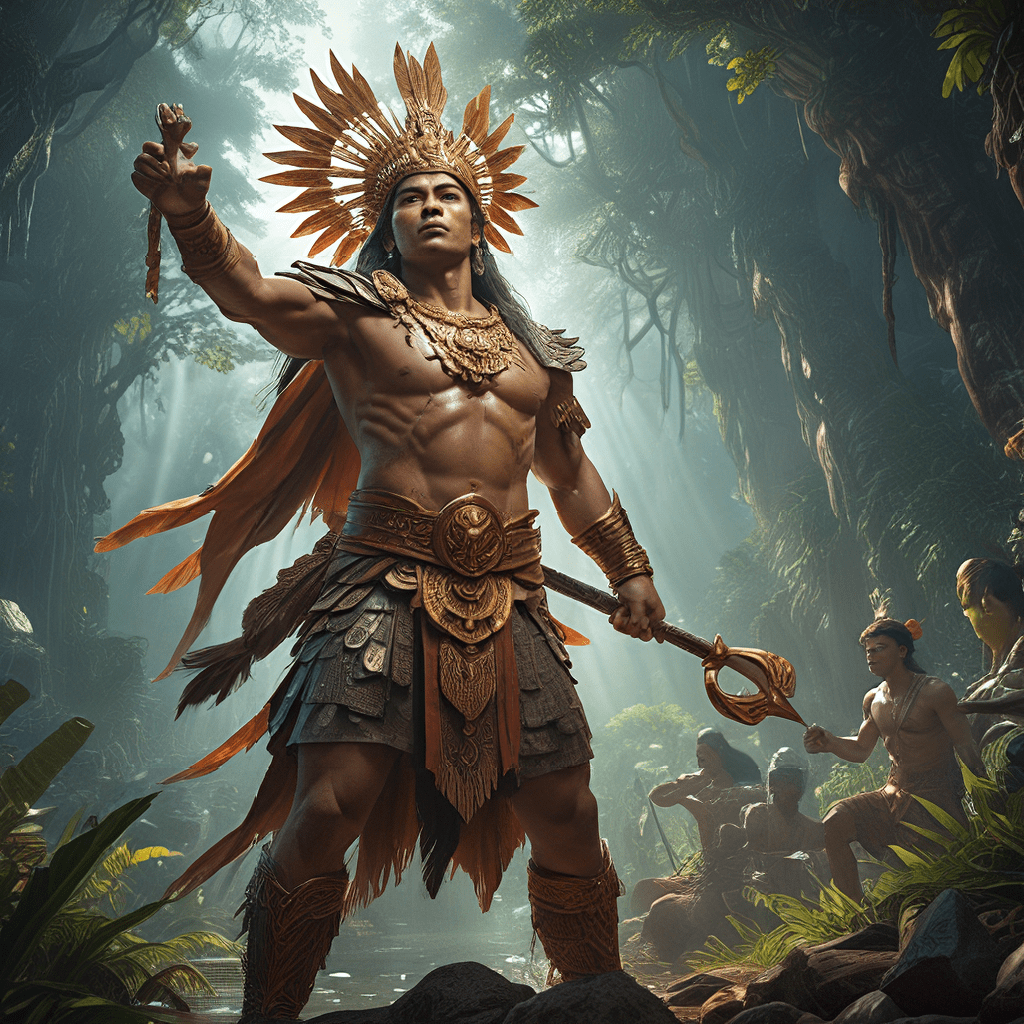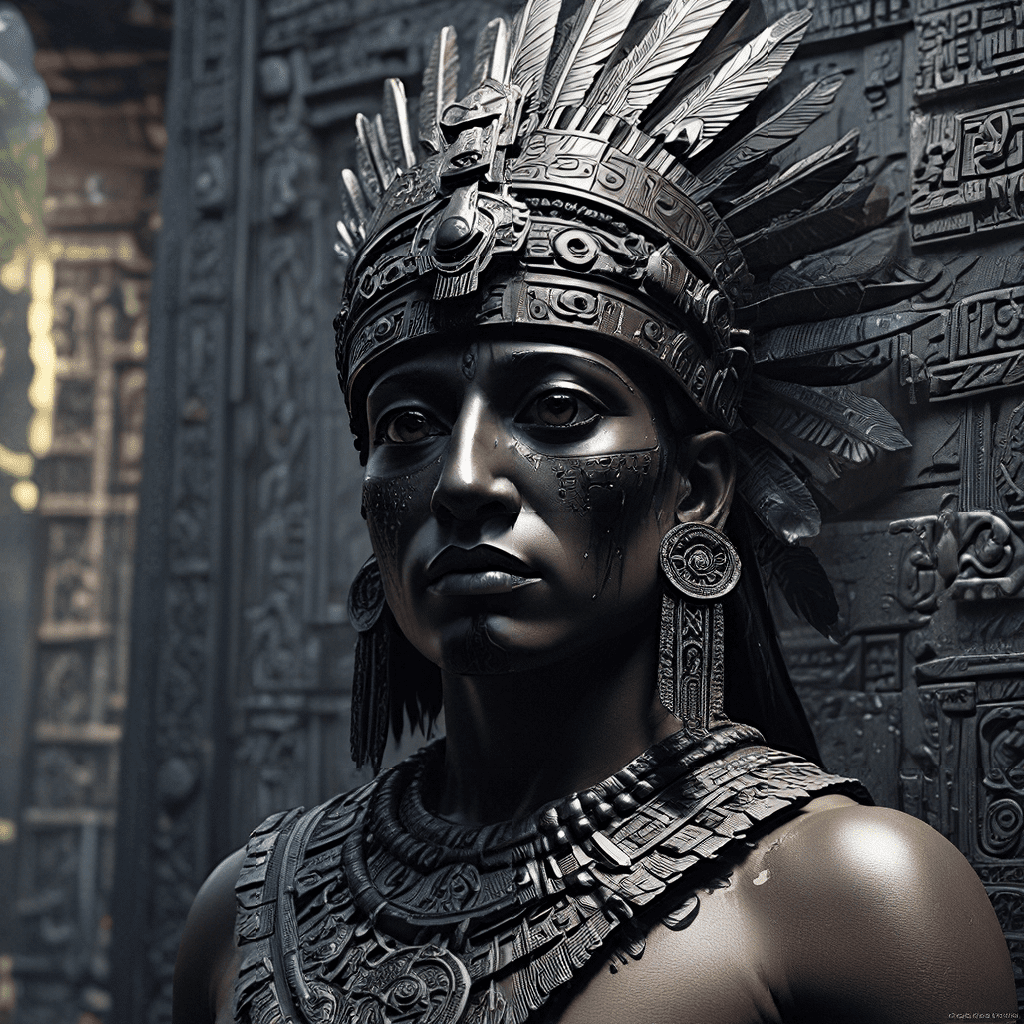Filipino Mythology: Epic Tales and Ancient Legends
**A Rich Tapestry of Myths and Legends**
Filipino mythology is a vibrant tapestry of stories, beliefs, and traditions that have been passed down through generations. It's more than just folklore; it's the heart and soul of Filipino culture, shaping their worldview, values, and understanding of the world around them.
The Philippines, an archipelago of over 7,000 islands, is home to a diverse range of indigenous groups, each with their own unique myths and legends. This diversity is reflected in Filipino mythology, which is a rich blend of various traditions, beliefs, and storytelling styles.
From the epic tales of heroes and deities to the stories of spirits and mythical creatures, Filipino mythology is full of wonder and intrigue. It's a treasure trove of wisdom, reflecting the Filipino people's reverence for nature, their deep connection to their ancestors, and their belief in the power of storytelling.
**Creation Myths: Shaping the Filipino Worldview**
Creation myths are the foundation of any culture's belief system, explaining the origins of the universe, humanity, and the natural world. Filipino creation myths are particularly fascinating, offering diverse versions across different regions and ethnic groups.
One common theme in these myths involves the role of deities, often associated with specific elements like the sky, earth, or water. For example, in the myth of the Visayan people, the universe was created by a powerful couple, Bathala, the sky god, and his wife, the earth goddess. These myths often emphasize the interdependence of all things and the importance of balance in the natural world.
Other creation myths, like those from the Tagalog people, involve the emergence of humanity from a bamboo stalk, symbolizing the fragility and preciousness of life. These stories provide insights into the Filipino world view, highlighting the importance of respecting nature, honoring their ancestors, and understanding the interconnectedness of all living beings.
**Heroes and Deities: Divine Figures and Epic Tales**
Filipino mythology is rich with powerful deities and heroic figures who play vital roles in shaping the stories and beliefs of the people. These figures, often endowed with supernatural powers, reflect the aspirations, fears, and values of the Filipino people.
One of the most celebrated deities is Bathala, the supreme god who governs all creation. He is often depicted as benevolent and just, symbolizing the Filipinos' strong sense of spirituality and their belief in a higher power. Other prominent deities include the mighty god of war, Kuang, and the beautiful goddess of the moon, Mayari.
These deities are often linked with epic tales that are passed down through generations. Stories like the "Lam-ang" epic, which narrates the adventures of a brave warrior who fought mythical creatures, showcase the values of courage, honor, and loyalty. These narratives highlight the importance of heroism, both in defending the community and in upholding moral principles.
**The Power of Ancestral Spirits: The Spirit World and its Influence**
Filipinos believe that the spirits of their ancestors continue to exist in the spirit world and exert a powerful influence on the lives of the living. They believe that these spirits can either bring blessings or misfortune, depending on how they are treated.
Ancestral spirits are deeply revered in Filipino culture and play a crucial role in maintaining social order, protecting the community, and ensuring the well-being of its members. These beliefs shape many aspects of Filipino life, from rituals and customs to social interactions and family dynamics.
Filipinos often perform rituals and ceremonies to appease the spirits of their ancestors, seeking their guidance, protection, and blessings. They offer food, drink, and prayers to their ancestors, seeking their favor and avoiding their wrath. The concept of "utang na loob" (debt of gratitude) is deeply rooted in this belief, emphasizing the importance of honoring and respecting those who have come before them.
**The Significance of Nature: Reverence for the Natural World**
Nature plays a central role in Filipino mythology, often being personified and imbued with spiritual significance. Mountains, rivers, forests, and even natural phenomena like typhoons are believed to be inhabited by spirits and deities.
Filipino culture highlights a close connection with nature, celebrating its beauty and respecting its power. Natural elements are often seen as sacred, reflecting the Filipinos' deep reverence for the environment and the interconnectedness of all life.
This reverence for nature is also tied to the Filipino tradition of environmental stewardship. The belief that nature holds spiritual significance leads to a sense of responsibility for protecting and preserving the environment, a value echoed in their traditional practices of sustainable farming and resource management.
The Power of Ancestral Spirits: The Spirit World and its Influence
Filipino mythology goes beyond just talking about heroes and gods; it places a strong emphasis on the belief in ancestral spirits and their connection to the living. These spirits are believed to be the souls of departed ancestors who continue to exist in a spiritual realm. These spirits are not merely passive observers; they're seen as influential figures who can impact the lives of their descendants.
Filipinos believe that ancestral spirits can bring both blessings and misfortunes. They can guide their families, protect them from harm, and offer wisdom from their experiences. But they can also cause misfortune if they're not honored or if they're angered. This belief has a significant impact on how Filipinos approach life and death.
To ensure good fortune and appease their ancestors, Filipinos engage in various rituals and practices. These include offering food and drinks to the spirits during special occasions, creating altars in their homes dedicated to their ancestors, and performing specific ceremonies to honor them. These practices are a testament to the deep respect Filipinos hold for their ancestors and their belief in the enduring power of family ties.
The Significance of Nature: Reverence for the Natural World
Filipino mythology reflects a deep reverence for the natural world. It's not just a backdrop for the stories; nature itself plays an active role, often being personified and imbued with supernatural powers. Mountains, rivers, forests, and even natural phenomena like typhoons are understood to be inhabited by powerful spirits or deities.
Mountains, often viewed as the abodes of deities, are seen as sacred places. They are revered for their strength, stability, and connection to the celestial realm. Rivers are often associated with fertility, abundance, and the flow of life itself. Forests are seen as places of mystery, inhabited by spirits that can either guide or mislead those who venture within them.
Filipinos recognize the power of nature and the interconnectedness of all living things. This belief translates into the value of environmental stewardship. Traditional practices like sustainable farming and resource management illustrate an understanding of the need to live in harmony with nature.
The Role of Storytelling: Oral Tradition and Its Impact
Filipino mythology has largely been preserved through oral tradition, passed down from generation to generation through storytelling. Storytellers, often revered as keepers of cultural knowledge, played a vital role in ensuring the survival of these myths and legends. They used their skills to weave captivating narratives that entertained, educated, and preserved the cultural identity of the Filipino people.
These stories were not just for entertainment; they served as a means of passing on values, beliefs, and lessons about life, morality, and the natural world. Through storytelling, Filipinos learned about their ancestry, their connection to the spiritual realm, and the importance of honoring their traditions.
The use of vivid imagery, symbolism, and allegory made the stories memorable and engaging, ensuring they would be passed on effectively. Oral storytelling fostered a strong sense of community, bringing people together to share their stories and experiences. This tradition continues to play a crucial role in shaping the identity and culture of the Filipino people.
The Legacy of Filipino Mythology: A Source of Inspiration and Identity
Today, Filipino mythology continues to inspire artists, writers, and cultural practitioners. Its stories, characters, and beliefs offer a rich source of inspiration for their work, enriching the cultural landscape of the Philippines.
These stories remind Filipinos of their unique heritage and offer valuable insights into their cultural values. They provide a roadmap for understanding the Filipino worldview, its connection to the natural world, and the importance of family and community. In a rapidly changing world, these stories offer a connection to the past, providing a sense of continuity and identity.
FAQ
Q: What are some common Filipino mythical creatures?
A: Filipino mythology features a fascinating array of mythical creatures, such as the kapre (a giant, cigar-smoking tree-dwelling creature often associated with mischievous behavior), the tikbalang (a creature with the head of a horse and the body of a human often said to lead travelers astray), and the manananggal (a vampire-like creature that detaches its upper body from its lower body to prey on humans).
Q: What are some of the key themes in Filipino mythology?
A: Key themes in Filipino mythology include the reverence for nature, the importance of family and community, the belief in ancestral spirits, the duality of good and evil, and the power of storytelling.
Q: How is Filipino mythology relevant today?
A: Filipino mythology remains relevant today as a source of cultural identity, inspiration, and wisdom. It continues to inform artistic expression, inspire storytelling, and provide insight into the Filipino worldview. The stories and beliefs offer valuable lessons about respect for nature, the importance of family and community, and the power of resilience in the face of adversity.



